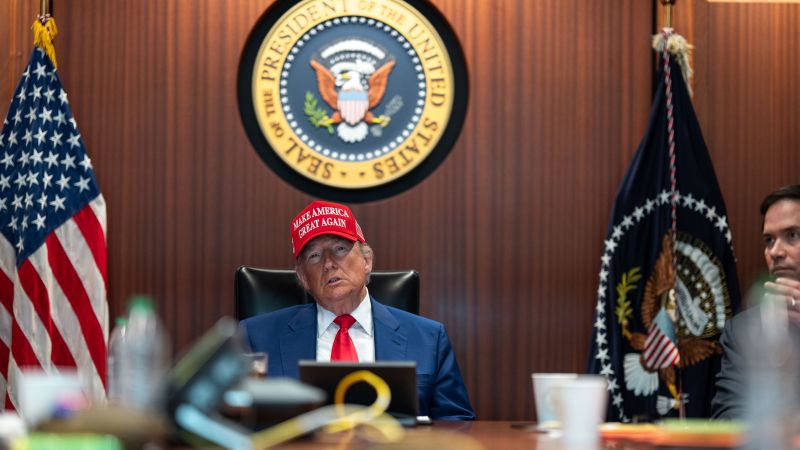
WASHINGTON, D.C. – President Donald Trump’s decision to bomb Iran’s nuclear facilities has sparked a significant constitutional debate over presidential war powers, as Congress considers its role in authorizing military action.
Immediate Impact on Constitutional Powers
The Trump administration has defended the strikes by citing the president’s authority under Article II of the Constitution. This provision grants the president the power to direct U.S. military forces to protect national interests abroad, according to senior administration officials. The White House counsel and the Justice Department were involved in the legal analysis leading to the decision.
“The president is clearly well within his Article II powers here,” a former senior U.S. official told CNN. “End of story.”
However, many legal experts and lawmakers from both parties disagree, pointing to the Constitution’s clear statement that only Congress can declare war. They also note the absence of an imminent threat to the United States, which traditionally justifies such military action.
Key Details Emerge
In response to the Vietnam War, Congress passed the War Powers Resolution in 1973 to limit presidential authority in military engagements. Ilya Somin, a law professor at George Mason University, argues that the scale of the Iran bombing requires congressional authorization.
“This is a large enough scale action that I think it’s likely that it should be considered a war,” Somin said. “The War Powers Act requires advance consultation with Congress, ‘whenever possible,’ before entering U.S. troops into hostilities.”
Legal and Historical Context
The Supreme Court has historically supported Trump’s use of executive power, adding complexity to the legal analysis. Chris Anders of the American Civil Liberties Union highlighted the constitutional debate, referencing the Federalist Papers and James Madison’s exception for repelling sudden attacks.
“If applied to Iran, it wouldn’t meet that test,” Anders said. “The use of bombing runs against facilities that have been standing there for years does not qualify as repelling a sudden attack.”
Background Context
Presidents have often bypassed Congress for military actions. Past examples include President George H.W. Bush’s intervention in Panama, President Barack Obama’s airstrikes in Libya, and Trump’s previous actions in Syria and Iran. John Bolton, former Trump national security adviser, emphasized the need to protect American interests against longstanding threats from Iran.
“We’ve seen Iran sponsor terrorism in Lebanon in 1983,” Bolton said. “They’ve been threatening our forces in the region for years.”
What Comes Next?
Enforcing constraints on Trump’s military actions may prove challenging. Although Congress could theoretically challenge the president in court, historical precedence suggests limited success. Bipartisan concerns exist, but without strong leadership, significant legislative action remains uncertain.
Representatives Thomas Massie and Ro Khanna are pushing for a war powers resolution to reassert congressional authority. Senator Tim Kaine indicated that Senate Minority Leader Chuck Schumer is advocating for a vote to determine the U.S. stance on war with Iran.
“This has been turned upside down,” Massie noted. “We haven’t had an Authorization of Use of Military Force.”
Expert Analysis
Stephen Vladeck, a legal analyst, emphasized the importance of congressional oversight in checking presidential war powers. The ACLU’s Anders suggested public hearings to scrutinize the administration’s military and legal justifications, potentially leading to a national debate.
“One advantage of going to Congress is a clear examination of what the United States is getting into,” Anders said. “That is part of the genius of the way the Constitution was set up.”
The unfolding situation with Iran continues to test the balance of power between the executive and legislative branches, highlighting the ongoing debate over the scope of presidential authority in military matters.



